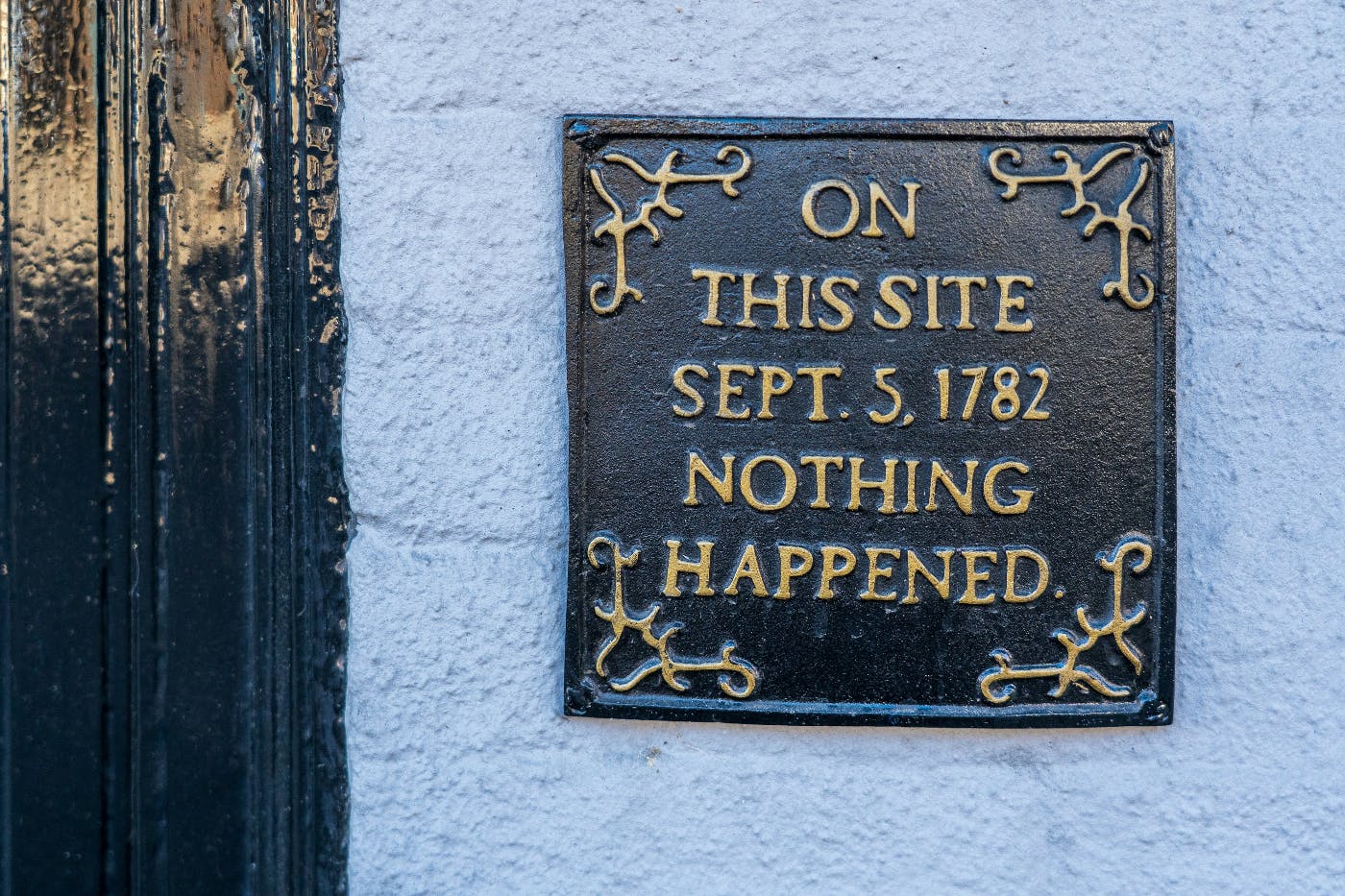

Why do we feel the need to exaggerate the humor of a situation online, and what are the consequences of this hyperbole?
I love dogs. I don’t have a dog because my landlord is an animal-hating freak show that often shows up unannounced to check if I have any pets. I had bought a dog friend of mine a new toy, and I keep a bag of top-notch dog treats on a shelf in my kitchen because if I go out and meet a new dog and make friends, I like to have a treat for them. Landlord-man saw both and insisted that I was hiding a dog in my one-bedroom apartment. I wasn’t, apologize he didn’t, but that’s why I don’t have a dog.
When I go anywhere with my friend Heather and one of us sees a dog on the street, in a car, or just standing, being a dog, we say “dog” and point it out to the other person. Why? Because dog. The point is that I like dogs, and when I see one, I want to meet him. I think we, as humans, don't deserve the love and kindness that dogs give us. But we have it, and we should always feel lucky.
Even though I like dogs, and they make me smile, and watching puppies do things and learn about life as they grow up can be funny, I am a little sick of the click-bait headlines about a dog doing something that is basic dog and saying people are in stitches over it. Or a dog waiting for his dinner is hilarious.
The word "hilarious" is commonly used to describe something extremely funny or amusing, evoking uncontrollable laughter or amusement. Its origins can be traced back to the Latin word "hilaris," meaning cheerful or merry. Over time, this Latin term evolved into the Middle English word "hilarious," which initially meant "cheerful" or "happy."
Today, "hilarious" has become a ubiquitous descriptor in everyday language, often used to exaggerate the humor of a situation or to express genuine amusement. Whether used to describe a witty joke, a comedic performance, or a humorous anecdote, the word "hilarious" continues to capture the essence of laughter and mirth, delighting both speakers and listeners alike with its infectious joviality.
Hilarious is overused and misused, and … well, it’s pissing me off. So today, I will delve into the mind-numbing exaggeration of humor and the overuse of words like hilarious and terms such as in stitches online.
Come, follow me down this rabbit hole.
In the digital age, humor has become a currency of its own, traded in memes, GIFs, and viral videos. From playful banter to comedic commentary, the internet is awash with laughter. But amidst this sea of humor lies a curious phenomenon: the exaggeration of online humor. What was once a simple chuckle or a fleeting smirk now becomes an uproarious burst of laughter, leaving one supposedly "in stitches." But why do we feel the need to exaggerate the humor of a situation online, and what are the consequences of this hyperbole?

The Exaggeration Epidemic
At first glance, the exaggeration of online humor might seem harmless—a harmless embellishment to make a mundane situation seem more entertaining. However, this exaggeration has become pervasive, saturating social media feeds and online conversations. What was once a genuine expression of amusement has morphed into a performative act driven by the desire for attention and validation.
One reason for this exaggeration is the pressure to conform to social norms online. In a digital landscape where likes, shares, and retweets reign supreme, there is an inherent pressure to present oneself in a favorable light. Exaggerating the humor of a situation becomes a means of garnering social approval and validation from peers.
Additionally, the anonymity and detachment afforded by the internet can lead to a desensitization to genuine emotion. Behind the safety of a screen, individuals may feel more inclined to exaggerate their reactions, blurring the line between genuine laughter and performative amusement.
The Unhelpful Nature of Exaggerated Humor
While exaggerated humor may seem harmless on the surface, it can have several detrimental effects on both individuals and online discourse as a whole.
Firstly, exaggerating humor perpetuates a culture of insincerity. When every mundane joke is met with exaggerated laughter, genuine moments of humor are overshadowed, diluting their impact. This constant inflation of humor diminishes its value, leaving individuals desensitized to genuine moments of amusement.
Moreover, the exaggeration of online humor can contribute to a sense of inadequacy and FOMO (fear of missing out) among individuals. Seeing others react with exaggerated laughter to seemingly mundane content can create unrealistic expectations for what constitutes humor. This can lead individuals to feel pressured to fabricate their own reactions in order to fit in with their peers.
Why We Do It: Understanding the Motivations
To understand why we exaggerate humor online, it's essential to delve into the underlying motivations driving this behavior.
One key motivation is the desire for social validation. In an age where social media metrics serve as a measure of one's worth, exaggerating humor becomes a means of seeking approval from others. By eliciting laughter and engagement from peers, individuals reinforce their sense of belonging within online communities.
Furthermore, exaggerating humor can serve as a form of self-presentation. By portraying oneself as constantly amused and entertained, individuals craft a carefully curated online persona that aligns with societal expectations of happiness and fulfillment.

How to Stop It: Promoting Authenticity Online
While the exaggeration of online humor may seem deeply ingrained in digital culture, there are steps we can take to promote authenticity and sincerity in online interactions.
Firstly, it's essential to challenge the notion that every piece of content requires an exaggerated reaction. By resisting the urge to inflate our responses to mundane humor, we can create a more genuine and nuanced online environment.
Additionally, fostering a culture of empathy and understanding online can help individuals feel more comfortable expressing their genuine emotions. By validating the experiences of others and celebrating moments of genuine humor, we can create a space where authenticity is valued over performative amusement.
Moreover, promoting self-awareness and mindfulness in online interactions can help individuals recognize when engaging in exaggerated humor. By reflecting on the motivations behind their behavior, individuals can make more conscious choices about how they present themselves online.
Summing Up
In conclusion, the exaggeration of online humor is a pervasive phenomenon with far-reaching consequences. While it may seem harmless on the surface, this hyperbole perpetuates a culture of insincerity and diminishes the value of genuine moments of amusement. By understanding the motivations behind exaggerated humor and taking steps to promote authenticity online, we can create a digital landscape where genuine laughter reigns supreme.
Your dog is fantastic, and all you need to say is, here’s my dog being a dog, and most people will watch it. You don't need hilarious, lose your mind, be in stitches, just dog here, being dog, and we’ll watch. Save the exaggerations for your dating profile; then we’re into the realm of hilarious.
